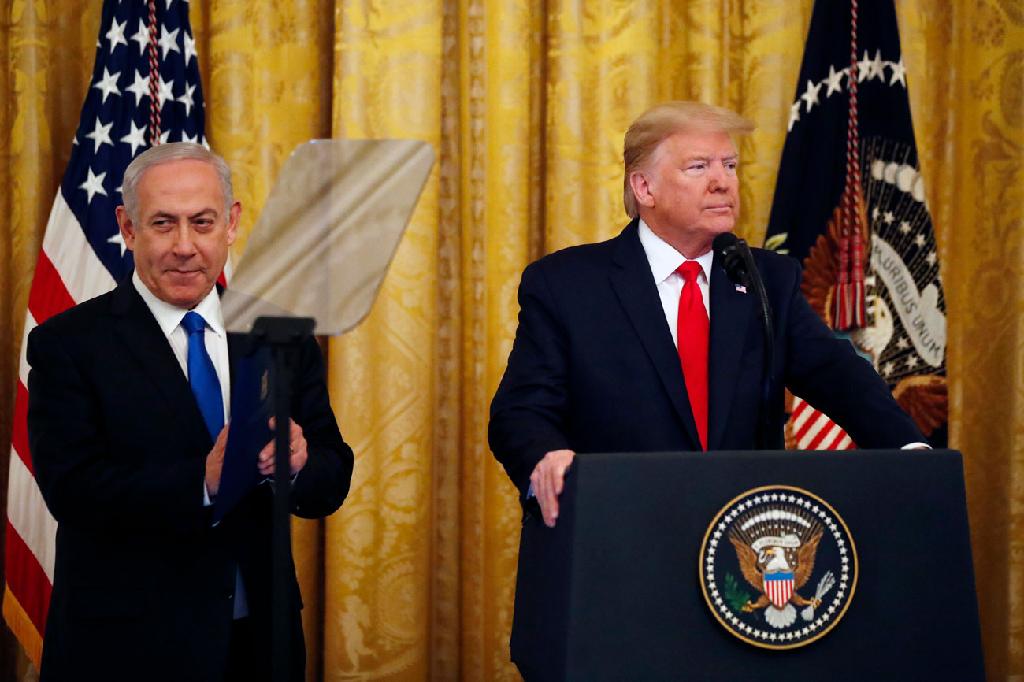Promises politicians make on the eve of an election tend to die as soon as the votes have been cast.
And it is now looking likely that the same fate awaits Prime Minister Benjamin Netanyahu's promise to annex at least 30% of the West Bank on July 1.
4 View gallery


Demonstrators in Tel Aviv protest the planned annexation of parts of the West Bank
(Photo: AFP)
A delay is not uncommon in the Middle East. Sometimes delays span weeks or months. Sometimes the delay is indefinite. Netanyahu is a master of delays; they are part of the secret to his success.
Still, July 1 is not an easy deadline to miss. It is Netanyahu who committed to it of his own free will, over and over, even after the 2020 elections and after the establishment of the current government.
"It is nothing but spin," declared Opposition Leader Yair Lapid of the plan.
But spin would mean the prime minister had no intention of annexing parts of the West Bank - and I am far from convinced that that is true.
In light of the complicated relations between Israel and the territories captured in the 1967 Six-Day War, the government has only two legitimate paths: It can leave things as they are or it can annex the land along with its Palestinian residents.
The option of leaving things as they are would be supported by most of the center-left electorate and the leadership of the settlement movement.
The center-left still clings to the hope of a two-state solution to the Israeli-Palestinian conflict and regards annexation as the obliteration of even the slightest chance of ever achieving it.
The far-right leaders of the settlement movement worry a partial annexation of the West Bank would mean the rest of the territory is up for grabs and would ultimately become part of a Palestinian state with secluded enclaves of settlements within its borders.
The option of annexing parts of the West Bank along with its Palestinian population is supported by many on the right, including President Reuven Rivlin, who believes there should be one egalitarian, Jewish and democratic state between the Jordan River and the Mediterranean Sea.
When Israel annexed East Jerusalem and its surrounding villages in 1967, it immediately granted all residents legal status and the right to apply for Israeli citizenship. The same was afforded residents of the Golan Heights, which was annexed by Israel in 1981.
Netanyahu, however, is suggesting another form of annexation, one he hopes would not exact a price.
He would annex the land but not its population. That has been tried before. It was called Apartheid and we all know how that ended.
Netanyahu believes this moment presents an historic opportunity with U.S. President Donald Trump - who is willing to support annexation - still in power and still motivated by his base.
But Trump's support should not overshadow the question of what is best for Israel, and annexation is not in its interest.
4 View gallery


Benjamin Netanyahu stands beside Donald Trump as he unveils the U.S. peace plan at the White House in January
(Photo: AP)
There are only a few ways now open to stopping the annexation, or at least limiting its scope: loud objections from the military and defense establishment; active objection from Netanyahu's coalition partners in the Blue & White Party; the threat of sanctions from European allies or action from the International Criminal Court; or disruption from far-right settler leaders.
The only other option is to convince Trump's evangelical base to come out against the move. Without the evangelicals, there is no Trump presidency and without Trump, there is no annexation.



